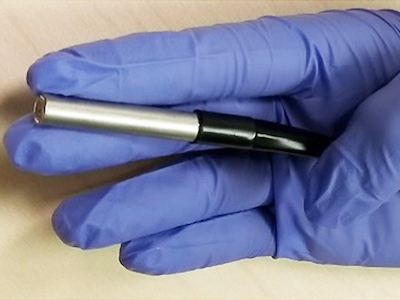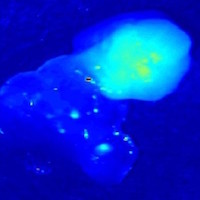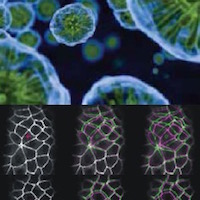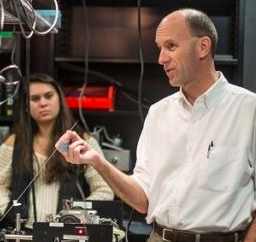Anita Mahadevan-Jansen
-

Pre-term birth risks evaluated under new light
In almost half the cases the cause of preterm birth is unknown. A new optical device designed by Vanderbilt biomedical engineers has the potential to predict risks of preterm labor. (Photo: U.S. Air Force) Anita Mahadevan-Jansen and her team are working to help more babies arrive safely. A small optical… Read MoreOct. 12, 2019
-

Mahadevan-Jansen elected to global photonics society’s presidential track
Anita Mahadevan-Jansen, Orrin H. Ingram Professor of Engineering and director of the Biophotonics Center at Vanderbilt University, has been elected to serve as the 2020 vice president of SPIE, the international society for optics and photonics that serves 257,000 constituents from 173 countries. Anita Mahadevan-Jansen With her election at the… Read MoreAug. 16, 2019
-

FDA approves device based on Vanderbilt invention to ID parathyroid during head and neck surgeries
Ten years after Professor of Biomedical Engineering Anita Mahadevan-Jansen discovered that parathyroid tissues glow under near-infrared light, the FDA has approved a device based on the technology for surgical use. She and her team developed the technology at the Vanderbilt Biophotonics Center. The device called “PTeye” has been tested at… Read MoreDec. 17, 2018
-

Vanderbilt Biophotonics Center collaboration seeks earlier diagnosis of throat cancer
Cancers of the tonsils and the base of the tongue related to the human papillomavirus (HPV) are frequently small, often with no early-stage symptoms, so many patients go undiagnosed until tumors have spread to lymph nodes in the neck. Oropharyngeal cancers—cancers of the back of the throat, including the base… Read MoreNov. 28, 2018
-

BME postdoc joins Academic Pathways fellowship program
Andrea Locke (Vanderbilt University) A biomedical engineer who has specialized in developing affordable, portable and rapid point-of-care glucose management devices is in the second cohort of fellows in Vanderbilt’s Academic Pathways Postdoctoral Fellowship program. The program serves as a bridge between academic training and entry-level faculty positions with a particular… Read MoreOct. 2, 2018
-

Novel, ‘multiplexed’ diagnosis may better identify candidates for cancer immunotherapy
A Vanderbilt engineering researcher has shown that combining an enhanced vibrational spectroscopy technique with tagged gold nanostructures can detect important tumor immunomarkers – a significant step toward predicting which patients would benefit from immunotherapy. The study by Rizia Bardhan, assistant professor of chemical and biomolecular engineering, involved breast tumors… Read MoreAug. 26, 2018
-

Weiss, Mahadevan-Jansen honored by OSA; Weiss also named SPIE Fellow
Two engineering professors have been named fellows of The Optical Society (OSA), a leading international association for optics and photonics. Cornelius Vanderbilt Professor of Engineering Sharon Weiss, a professor of electrical engineering, received the distinction “for contributions expanding the use of silicon in photonics and optoelectronics, and especially… Read MoreJan. 17, 2018
-

Shining a light on the nervous system to thwart disease
E. Duco Jansen, professor of biomedical engineering at Vanderbilt, and two other Vanderbilt professors developed the underlying infrared nerve modulation technology for the research into treating disease with light. (Vanderbilt University/Daniel Dubois) Vanderbilt University researchers are teaming with peers from two other universities to develop ways to fight disease with… Read MoreNov. 16, 2017
-

Engineering faculty lead 3 new TIPs projects that tackle big challenges
Build and use microscope systems that do not exist commercially to unlock deeper insights in biomedicine. Design and develop a space-based platform to study Earth’s evolving ecology from an elevated vantage point. Create a research hub for development and testing of durable, sustainable infrastructure materials. All big ideas with widespread… Read MoreJul. 20, 2017
-

Researchers’ sensor integrates inflammatory bowel disease detection into colonoscopy procedure
The sensor detects molecular markers of IBD using a minimally-invasive endoscope that can be easily integrated into a routine colonoscopy exam. Credit: Vanderbilt University Vanderbilt researchers have developed the first sensor capable of objectively identifying inflammatory bowel disease (IBD) and distinguishing between its two subtypes. The device represents a… Read MoreJan. 5, 2017